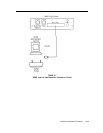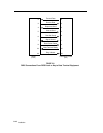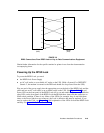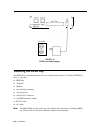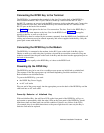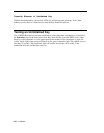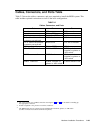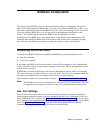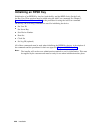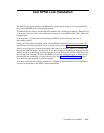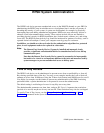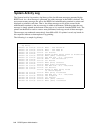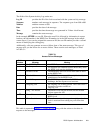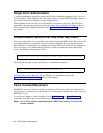
Software Components
The software for the RPSD system is contained within the hardware components and does not
need to be loaded separately. Additionally, if you are not installing an RPSD Key or Keys, you
need only set the date and time for the RPSD Lock and, in the case of multiple Locks, a Lock ID.
If you are installing RPSD Keys, you will need to do some additional initialization on the
Lock(s). The initialization procedures for RPSD Locks and RPSD Keys follow.
Initialization of the RPSD Lock is the responsibility of the RPSD system administrator. The
technician who installs the RPSD Lock will test the system to make sure it is running properly,
but will not set any additional parameters or make any changes to the system defaults.
Initializing the RPSD Lock
To initialize the RPSD Lock where no additional RPSD Keys are being installed, use the:
■
Date Set command
■
Clock Set command
If more than one RPSD Lock is being installed, use the ID Set command to allow identification
of the Lock when viewing system activity messages. Each Lock's ID will be prepended to each
system activity message.
If RPSD Keys are being installed, the Lock must be administered with the Add User command.
This step is necessary to permit the Key to access the Lock. The Test User command should also
be employed to make sure that the addition of the new Key worked properly.
The commands and their use are described in Chapter 3, System Administrator Command Set.
Note:
The installer will not have an administration terminal to use for initialization. This must
be supplied by the customer and must be ready for use when initialization takes place.
Aux. Port Settings
You will also need to set the link speed, character length, and parity on whichever equipment
(administration terminal or printer) you have attached to the Aux. Port. The default for the Aux.
Port is 9600 baud, 8 bit, no parity. See Chapter 3, RPSD System Administration for the use of the
Set Communications Parameters command to change the default settings, if desired, on the RPSD
Lock. See Chapter 4, RPSD Key Use for the use of the Set Communications Parameters
command to change the default settings, if desired, on the RPSD Key.
Software Components
2-25



